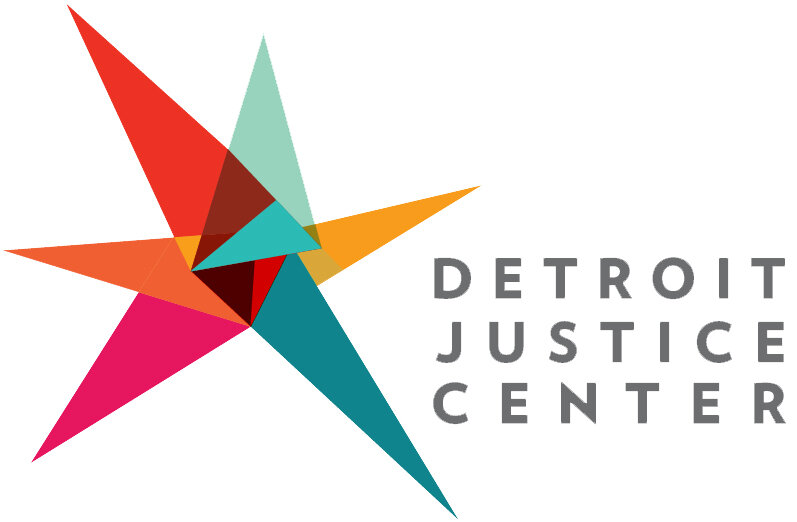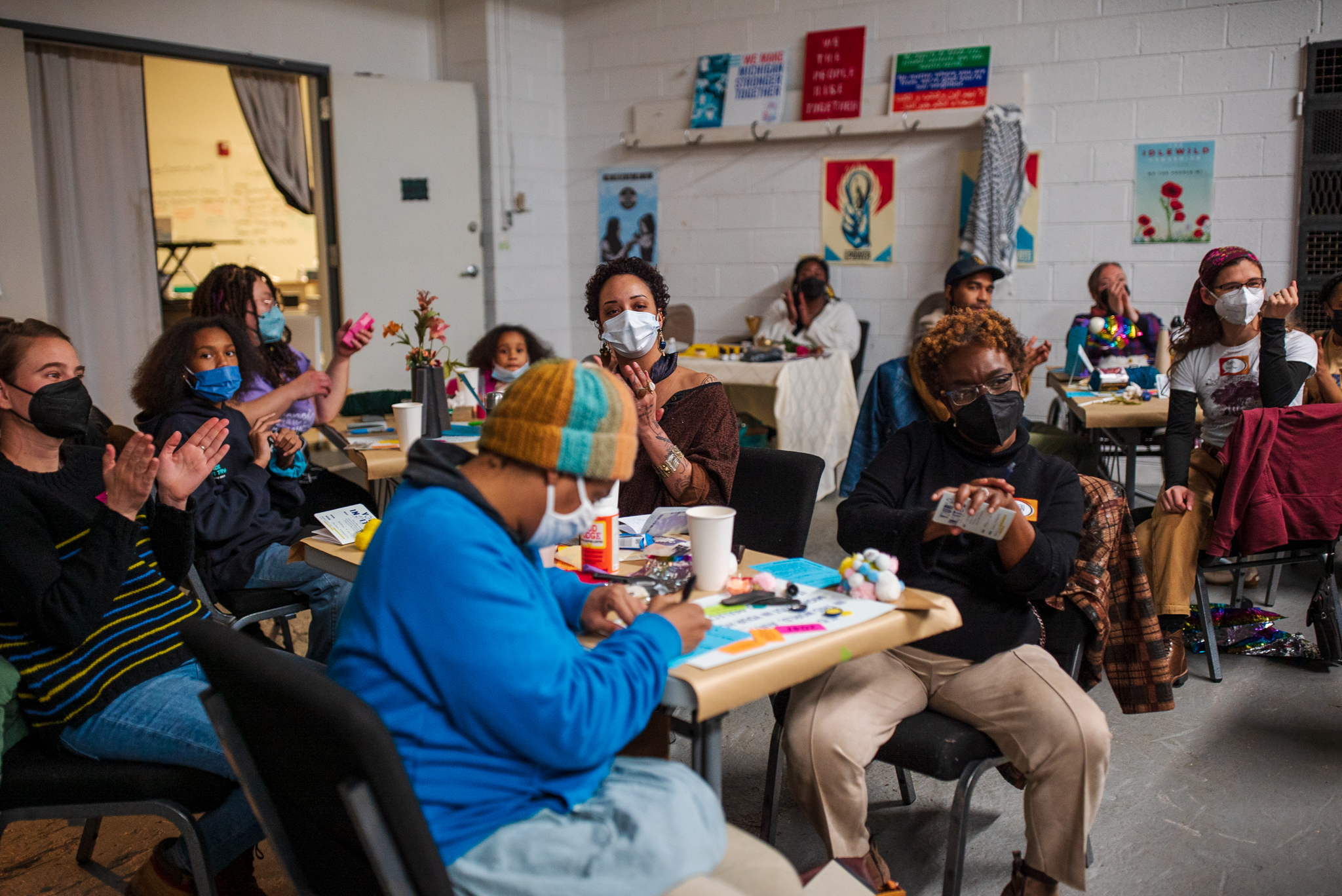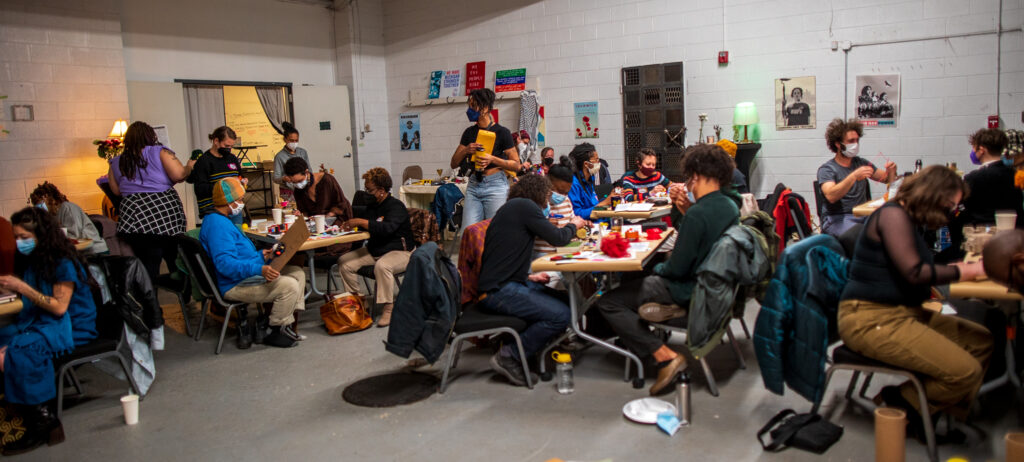
What does abolition look like as a creative practice? Ruth Wilson Gilmore reminds us that “abolition is about presence… it is building life-affirming institutions.” In this light, frameworks of defunding the police and getting rid of prisons can explain only a part of the abolitionist process. Abolition sees prisons in hierarchies, punitiveness, and opportunism that brew distrust, disconnection, and injustice. Its creative practice cannot be encapsulated by making demands on government bodies that uphold whiteness, capitalism, and their carceral cultures – hence destruction of life. The questions and practices of abolition must instead begin more intimately from within our skin, our relationships, and our existence in a larger kinship network of living. [Indigenous worldviews offer essential wisdom and practices towards abolitionist relationships, as exemplified in the book Restoring the Kinship Worldview: Indigenous Voices Introduce 28 Precepts for Rebalancing Life on Earth. For generative conversations on how abolition and Land Back movements must support one another, check out Rehearsals for Living by Leanne Betasamosake Simpson and Robyn Maynard. ] The teacher Mariame Kaba explains the productiveness of visioning abolition from statelessness, naming a process of “trying to think together as we work together to bring into fruition the world in which we want to live.”
Building an Abolitionist Detroit workshop series was conceived from this beginning point of visioning, of collaboratively experimenting with abolitionist futures. It relied upon decades of creative, fierce, and loving organizing that have been growing across Detroit. For when we let abolition unfurl as a framework for living beyond racialized capitalist extraction, colonial dispossession, and subsequent loss of humanity and interconnectedness, we are not left with a void. There is an array of stories Detroiters have been practicing for meeting our needs, directing our creative energies, and transforming with conflict in our relationships, which offer blueprints for abolitionist living. These workshops brought together neighbors including urban farmers who are healing our connections with land and promoting neighborly bonds as well as food security; cooperatives and mutual aid practitioners who are prioritizing local economies and relationship-based production and care over profits; healing and disability justice collectives who are restoring wholeness and slowing down time to pay attention to our spectrums of needs; transformative and restorative justice practitioners who are introducing methods of engaging with conflict that strengthen our connections, while prioritizing true accountability and growth over punishment and exclusion; and artists and culture workers who are channeling the unbreakable force of our imagination to connect us within our histories and making a map through what appears overwhelming.
The method and curriculum of the workshops centered art and healing processes that are often overlooked and regarded as secondary to political praxis. Yet, artists and healers can connect abstract, emotional, and relational conversations into collaborative practices – they can energize culture-building as a microcosm of care, interdependence, and living in our truths. Centering this wisdom, Lauren Williams led the first workshop titled Abolition as Process, Art as Methodology. Through a mad-lib game, we arrived at disparate abolitionist possibilities in small groups, and created objects that can exist in our homespaces, to approach the future tangibly and with an agency to shape it.
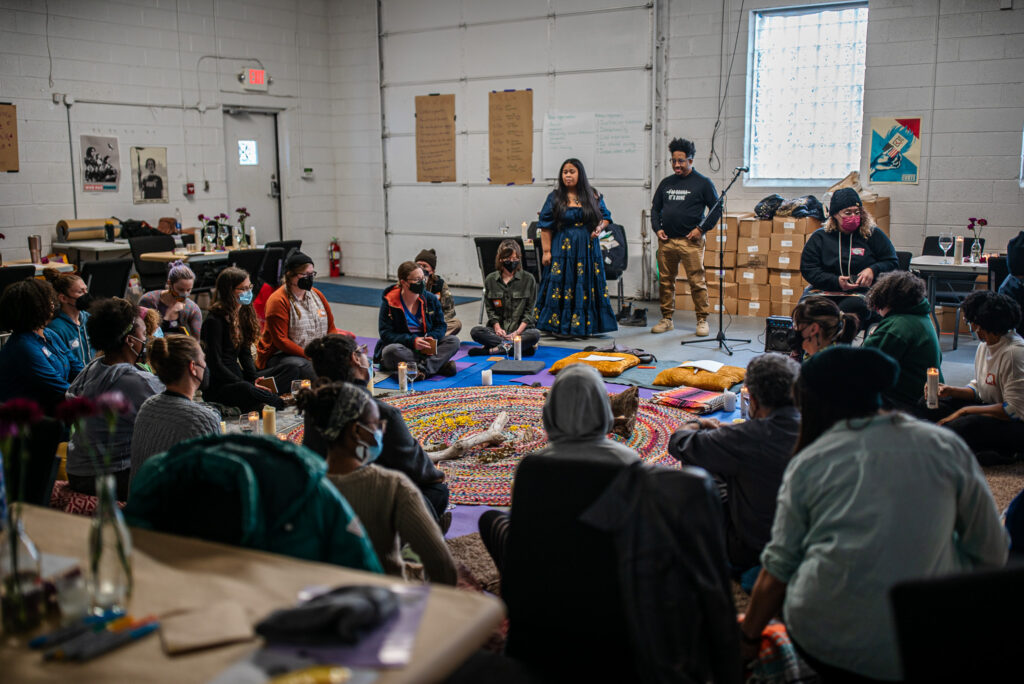
The next workshop titled Abolition within Our Selves was collaboratively facilitated by the TETRA and Accountability for Dearborn. Through ritual and discussions, we inquired into fear of uncertainty as an emotional force that challenges claiming the unknown, while voicing strategies for finding and spreading courage. The third workshop, Abolition within Our Relationship, turned this internal dynamic outwards through the loving wisdom of Curtis Renee of Detroit Safety Team and Sicily McRaven. We created a vulnerable space centering a time when we each have harmed someone, and crafting pod-maps to identify what would have helped us in transforming these conflicts across healing, growth, and accountability. In the final workshop, Mapping Abolition, Adrienne Ayers, Halima Afi, and Feedom Freedom Growers offered us communal sufficiency as a framework for abolitionist futures. After being grounded in stories that give a form to meeting our needs together, we explored our needs and offerings towards existing in communal sufficiency. Our time wrapped up with a collage-mapping exercise, led by Halima Afi, to visualize the rich resources, memories, and spaces spread across Detroit that can nurture abolition.
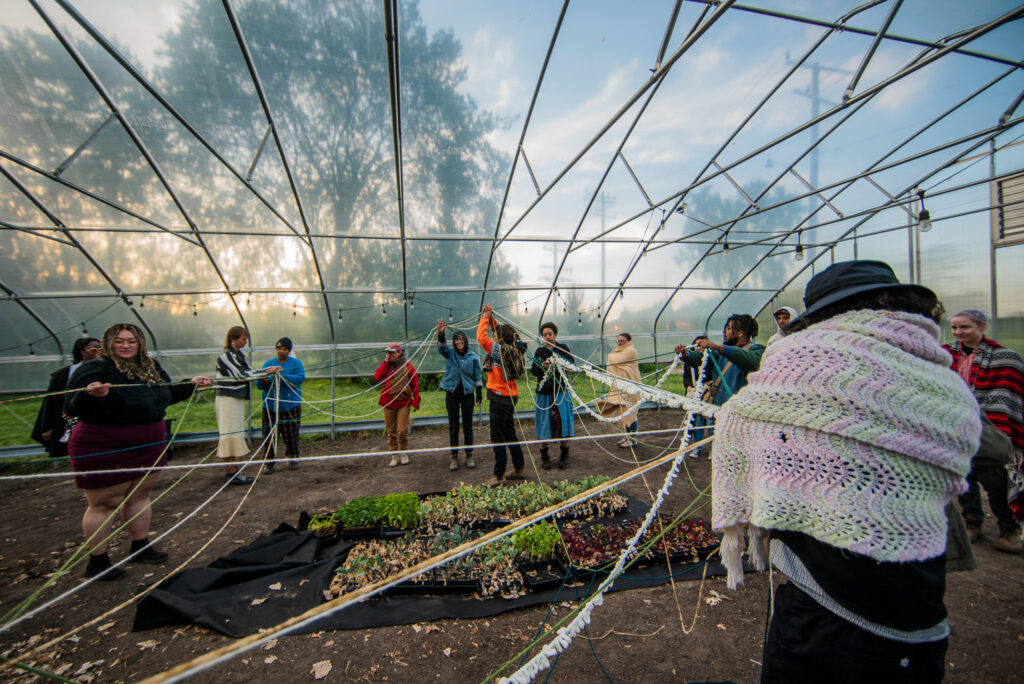
These workshops were beginning points, a set of invitations to turn within and towards one another for creating abolition. In a backdrop of political pessimism and overwhelming grief, we are made to feel powerless, dependent upon a tiring fight with politicians and their deep-pocket corporate buddies, and stuck in responding to crises after crises. Abolition asks of us to keep the fight, while considering solutions that will not be handed down to us, but require transformations of the building blocks of our lives. This is a process without clear outcomes or a how-to handbook; it is a process of experimenting, failing, and trying again; it asks of trust, of creativity, of a care that extends beyond our immediate relationships to understand, in the words of Gwendlyn Brooks that “we are each other’s business.” How would we move, breathe, think, connect differently with this wisdom at the center; what would it look like to bring down walls and see each other, end policing alongside our inner police, and live without fear and in alignment with our spirits? These are questions of practicing hope, of coming together with intention, and shaping abolition as we change our lives.
